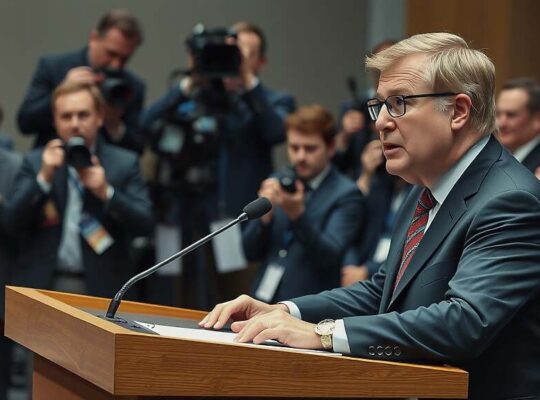The German Transport Minister, Patrick Schnieder of the Christian Democratic Union (CDU), has returned to full official duties following a recent health scare. Schnieder experienced a circulatory collapse during a cabinet meeting in late September, forcing him to take a week of enforced rest. He attributed the incident to a combination of a lingering cold and insufficient hydration, downplaying concerns regarding a more serious underlying condition.
While the minister’s recovery is welcome, his return coincides with a renewed focus on the deeply problematic performance of Deutsche Bahn, the national rail operator. Schnieder bluntly described the company’s punctuality figures as “absolutely unsatisfactory” a stark admission highlighting the systemic failures plaguing the vital transportation network.
The government’s response centers on a massive infrastructure overhaul scheduled to be completed by 2036, involving the fundamental refurbishment of 42 high-performance rail corridors. This ambitious project, costing billions, is presented as a cornerstone of a broader strategy to improve reliability. However, critics are already questioning whether infrastructure alone can solve the issues, pointing to a history of mismanagement, outdated operational procedures and a complex web of bureaucratic inefficiencies that contribute to the persistent delays.
Schnieder has refrained from committing to specific punctuality targets for 2026, a move that has drawn considerable scrutiny. While acknowledging the need for improvement, he cautiously projected a target of at least 70% on-time performance by 2029, with a medium-term goal of 80% and a long-term ambition of achieving 90%. This measured approach has been interpreted by some as an attempt to manage expectations and deflect blame for the current dismal results, particularly given the lack of detailed plans outlining how these targets will be met.
The delayed and vaguely defined timelines raise important questions about the government’s commitment to a fundamental restructuring of Deutsche Bahn. The reliance on large-scale infrastructure projects, while necessary, risks overshadowing the equally pressing need for reforms within the company itself, reforms that require a willingness to challenge established practices and address underlying cultural issues within the organization. The public and particularly frequent rail commuters, will be keen to observe whether Schnieder’s rhetoric translates into tangible improvements, or remains merely aspirational goals adrift in a sea of persistent delays.












